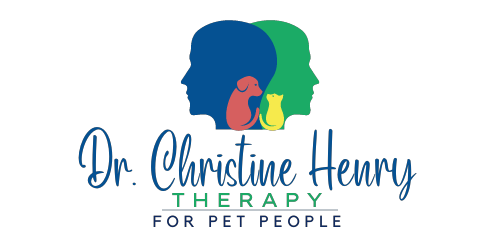
Family Estrangement Therapy
Coping with Emotionally Immature, Estranged, or a Toxic Parent
You’ve spent years trying, setting boundaries, softening your tone, explaining your side and still, nothing changes. When you finally speak up, the responses are painfully predictable:
After everything I’ve done for you, this is how you treat me?”
You’re remembering it wrong.
You’re so sensitive. You take everything I say and blow it out of proportion.
You think you had it bad? You should have seen how I grew up.
Meanwhile, they keep pushing their religious or political beliefs on you, making comments about your weight, slipping in racist remarks, criticizing your parenting, or judging how you spend your money.
No wonder each phone call or holiday visit leaves you feeling drained, dismissed, and somehow like you’re always the problem.
It wears you down. And then the guilt creeps in. In dealing with my own family, I would second-guess myself: “Am I overreacting?” “Is it really that bad?” I’d remind myself of their trauma, their hardships. “They did the best they could”, I’d think. But deep down, I knew I’d been carrying the weight of their choices for far too long
This isn’t about holding a grudge. It’s about holding a boundary one that protects your peace.
And yes, even when it’s the healthiest choice, it still hurts.
You don’t need someone to tell you to just “get over it” or “forgive and forget.” You need someone who understands the nuance who can help you grieve what never was, honor what’s true now, and move forward without guilt swallowing you whole.
Therapy for the Ones Who’ve Tried Everything
I work with adults carrying the emotional weight of a parent-child relationship that feels backwards. They’re tired of offering support and never receiving it, of turning to a parent for love and getting hurt instead.
If you’re wrestling with questions like:
Why do I feel so guilty when I know this is the right thing?
Is low contact enough, or is it time to go no contact?
How do I set a boundary without being the villain?
How could a parent treat their child that way? I would never do that to mine.
…it’s because you’re in the thick of something deeply complicated and you’re not a bad person for needing distance. In fact, wanting clarity, peace, and self-respect is a sign you’re listening to yourself in a way you may never have been allowed to before.

Together, we’ll untangle the hurt, make sense of the grief, and find a way forward that actually protects your peace.
If you’re wondering what that might look like for you, let’s talk. I offer a free 20-minute consultation so you can share what’s been weighing on you, get a feel for how I work, and see if this feels like the right fit. No pressure, just a chance to have someone truly listen and help you take the next step toward relief.
You Can Grieve and Still Protect Yourself
Estrangement doesn’t always look like a dramatic cutoff. Sometimes it’s the slow, quiet heartbreak of realizing a parent just isn’t capable of the relationship you always hoped for.
That grief is real and valid.
In therapy, we’ll create space for you to:
Untangle the guilt from the truth.
Explore what level of contact feels safe and sustainable.
Build scripts and boundaries that honor your emotional safety.
Process the complicated grief of letting go even while they’re still here.
You don’t have to carry this alone anymore.

I’m here to help you stop bleeding emotionally from wounds that never seem to close.
Together, we’ll figure out what healing looks like for you even if that means walking away.
I won’t pretend it disappears forever. I’ve found a balance with my own parent that feels right enough distance to protect my peace, but not without moments of grief. Holidays, milestones… they still sting. But the pain doesn’t take over my life anymore. And that’s the kind of peace I want to help you find, too.
You don’t have to make a decision right now.
Therapy isn’t about choosing sides or rushing into action, it’s about having a space to process what’s happening, at your own pace.
A place that’s just for you, where everything you’re feeling is welcome.
If you’re ready to see what that space could look like, click below to set up your free 20-minute consultation.
Fill out the form, and I’ll email you within 1–2 business days with a few times to meet via secure video. In that call, we’ll talk about what you’re looking for, I’ll share how I work, and we’ll see if it’s a good fit. If it is, we’ll set up your first session. If not, I’ll help point you toward other options.
Frequently Asked Questions
-
No, I don’t provide family/joint sessions for estrangement. My work is individual therapy focused on helping you process what happened, reduce guilt, and build boundaries and a level of contact (or distance) that protects your emotional safety.
This isn’t about trying to convince the other person to change. It’s about giving you space to make sense of what’s happened and decide what kind of contact (or distance) feels right and sustainable for you.
-
Not at all. Some clients have gone no contact, others are low contact, and some are still deciding what’s right for them. You’re welcome here no matter where you are in that process.
-
No. My job isn’t to make that decision for you, it’s to give you a safe, nonjudgmental space to explore your options, understand your feelings, and figure out what works best for your peace and well-being.
-
That’s incredibly common. We’ll talk about where that guilt comes from, how to separate it from your values, and how to make choices that protect your emotional health without being swallowed by self-blame.
-
We can create a plan for navigating those situations from setting boundaries in advance to handling conversations that cross the line so you feel more in control and less drained afterward.
-
Absolutely. Estrangement can happen in many forms , parents, siblings, extended relatives and the grief, guilt, and complexity are valid in every case.
-
I don’t work with parents who are trying to understand or repair estrangement with their adult children. My focus is on supporting adult children who’ve chosen distance, limited contact, or no contact in order to protect their own well-being. If you’re a parent in this situation, there are other therapists and resources specifically designed to support you.
-
Those are common deflection scripts. In therapy, we’ll work on ways to respond that don’t trap you in circular arguments. Plus there can be the deeper work of trusting your reality again, especially if you’ve been gaslit or chronically invalidated.
-
We can create specific scripts and plans for these hot-button topics, plus consequences that protect you (ending the call, leaving, changing plans, limiting visits). The focus is your emotional safety, not winning an argument.
-
It often includes:
Untangling guilt, obligation, and fear from what’s true now
Clarifying what level of contact is safe (and what isn’t)
Boundary scripts and “exit plans” for calls/visits/holidays
Processing grief, anger, sadness, and the loss of the parent you needed
Rebuilding self-trust and reducing rumination after interactions
Supporting you through milestones (holidays, birthdays, big life events)
-
That’s not my approach. This work is about honesty, grief, boundaries, and healing, not minimizing, bypassing, or forcing forgiveness.
-
A helpful clue is the pattern. If you consistently leave interactions feeling blamed, dismissed, guilty, or like you have to prove your reality, that’s not “being too sensitive.” Emotional immaturity often looks like defensiveness, denial, minimization, and making your feelings the problem.




